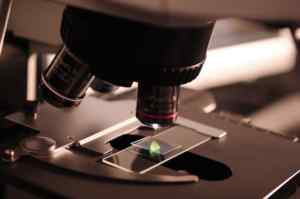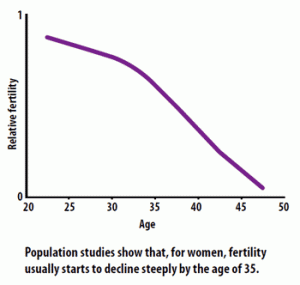What are Anti–sperm Antibodies?
An antibody is a blood protein produced by your body’s immune system in response to the stimulation of a specific antigen. Common antigens include multiple antigens in bacteria, viruses, cancer cells and foreign substances in the blood. The antibodies combine chemically with antigens and serve to help the body target and fight-off theses “dangerous” or “unwanted” cells or substances. However, it is possible for antibodies to work against the body’s own cells; such is the case in many autoimmune diseases. In cases of vasectomy, especially after long periods of time after the surgery, it is possible for the body to form antisperm antibodies. This is a concern for many patients seeking vasectomy reversal.
This is normally not a problem with sperm cells as they technically not in the body, in the same sense that the inside of our digestive tracts are not considered to be inside the body. Sperm is created in the testes, transported by the vas deferens, mixed with seminal fluid, and exits the body during ejaculation- at no point does sperm ever contact blood, as direct contact is prevented by the testes/blood barrier.
When the blood-testis barrier is compromised under certain circumstances, such as trauma/surgery, infection, cancer and congenital defect, sperm could be exposed to blood and trigger the immune responses, which leads to antibody development. Development of anti-sperm antibodies after vasectomy is thought to be related to the breakdown of the blood-testis barrier and leakage of sperm antigens from the epididymis. For this reason, the body may treat sperm as a foreign pathogen, creating antibodies that correspond to the antigens on the surface of the sperm cell. A vasectomy, especially if a long period of time has passed since the procedure, can result in higher concentrations of anti-sperm antibodies.
Antisperm antibodies are found in between 8% and 21% of men in the general population, 9% and 36% of infertile patients, and 70-100% of men after vasectomy. Studies have provided convincing evidence that a vasectomy does not lead to development of autoantibodies in men other than anti-sperm antibodies, and there is no evidence of any immunologic or other diseases related to development of anti-sperm antibodies following vasectomy.
What is the Relationship of Anti-sperm Antibodies with Vasectomy Reversal Procedures?
Antisperm antibodies can affect fertility in the male if they are in high concentrations. Fertility loss can come at varying degrees; the more antibodies one has, the lower fertility will be. B- immune cells create multiple types of sperm antibodies. Some antibodies will cause sperm to stick together, forming large clumps that hinder mobility of the sperm. Other antibodies act as a “flag” for natural killer cells, and others can even bind with the antigens on the surface of the egg in the womb, causing its destruction.
How Anti-sperm antibodies affect fertility following vasectomy reversal is not clear. While 79% of men that are tested after a vasectomy have elevated antisperm antibodies, the levels at which they are present are not significant enough in most men to cause a significant drop in fertility. Most experts, including those from the American Urological Association, agree that there are rarely significant long-term side effects that arise from vasectomy.
The practice guidelines of the American Society for Reproductive Medicine and the Society for Male Reproduction and Urology stated:
“Overall postoperative conception rate (following vasectomy reversal) is relatively high (50% to 70%) and the presence of antisperm antibodies does not correlate closely with postoperative fecundability. Consequently, the value of preoperative antisperm antibody testing remains controversial and unproven.”
Here is a summary of research evidence:
1) Despite almost all men having detectable antibodies following a vasectomy, two thirds of vasectomy reversals are successful in achieving a pregnancy.
2) The presence and levels of antibodies following vasectomy reversal inconsistently predicts what couples will be successful in achieving a pregnancy.
3) The subjects of most research were infertile men. Research data from fertile men is lacking.
4) Testing for sperm antibodies is not well standardized. There are different types of antibodies and different locations in the sperm. The influences from each antibody are unclear.
 Led by a small team of scientists from the Institute for Therapeutics Discovery and Development at the University of Minnesota, the search for a non-hormonal male birth control pill ultimately zeroed in on the toxic substance known as ouabain. Found in two types of African plants, ouabain was traditionally used as poison on hunting arrows and is sometimes medically used to treat heart arrhythmias.
Led by a small team of scientists from the Institute for Therapeutics Discovery and Development at the University of Minnesota, the search for a non-hormonal male birth control pill ultimately zeroed in on the toxic substance known as ouabain. Found in two types of African plants, ouabain was traditionally used as poison on hunting arrows and is sometimes medically used to treat heart arrhythmias. If you’re looking for a natural, inexpensive way of boosting sperm quality and overall fertility, the answer may lie within…tomatoes?
If you’re looking for a natural, inexpensive way of boosting sperm quality and overall fertility, the answer may lie within…tomatoes? 1. Walnuts
1. Walnuts 5. Dark Chocolate
5. Dark Chocolate You may be familiar with the term “antibodies” as “something that helps the body ward off disease,” but the notion of sperm antibodies might seem counterintuitive. After all, why would the body want to destroy perfectly good sperm?
You may be familiar with the term “antibodies” as “something that helps the body ward off disease,” but the notion of sperm antibodies might seem counterintuitive. After all, why would the body want to destroy perfectly good sperm? The height of the eugenics movement (1920s to mid-20th century) saw compulsory sterilization programs established in over 30 states, resulting in over 60,000 sterilizations of often healthy people. Criminals and prison inmates were especially targeted, as well as those deemed “feeble-minded,” mentally deficient, or simply capable of passing on undesirable genes.
The height of the eugenics movement (1920s to mid-20th century) saw compulsory sterilization programs established in over 30 states, resulting in over 60,000 sterilizations of often healthy people. Criminals and prison inmates were especially targeted, as well as those deemed “feeble-minded,” mentally deficient, or simply capable of passing on undesirable genes.


